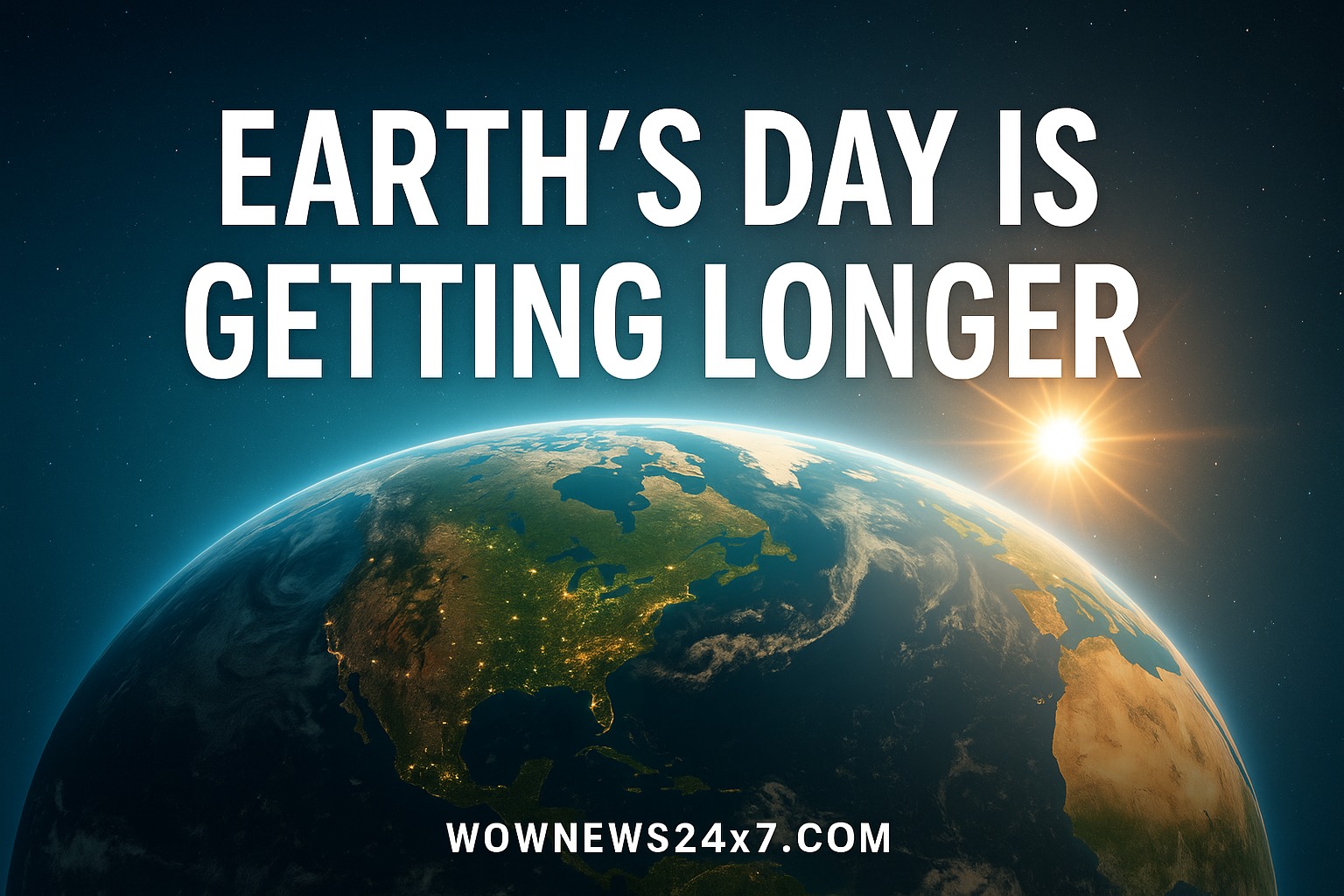Earth’s rotation—a force so constant we rarely notice it—is subtly but steadily changing. Recent scientific studies reveal that both natural processes and human-induced climate change are influencing how fast our planet spins, with consequences that ripple through timekeeping, technology, and even the environment.
Why Is Earth’s Rotation Changing?
Earth’s rotation is primarily governed by the conservation of angular momentum, but it’s influenced by several factors:
-
Tidal Forces: The gravitational pull of the Moon and Sun creates tides that gradually slow Earth’s spin, lengthening the day by milliseconds over centuries.
-
Core and Mantle Dynamics: Movements in Earth’s liquid outer core and mantle can speed up or slow down rotation, sometimes causing short-term fluctuations.
-
Climate Change and Melting Ice: Recent research shows that rapid melting of polar ice caps, driven by global warming, is shifting mass from the poles to the equator. This redistribution increases Earth’s moment of inertia, causing it to spin more slowly—much like a figure skater slowing down when extending their arms.
-
Water and Mass Redistribution: Groundwater extraction and rising sea levels also shift mass, further affecting rotational speed and the planet’s axis.
What Does This Affect?
-
Longer Days: The rotation slowdown means days are getting longer, albeit by only milliseconds each century.
-
Timekeeping Disruptions: Changes in rotation require adjustments to Coordinated Universal Time (UTC), sometimes adding or subtracting a “leap second.” The next adjustment may be a negative leap second, a first in history, posing challenges for computer networks and global systems.
-
Satellite and Navigation Systems: Precise timing is crucial for GPS and telecommunications; rotational changes can disrupt these technologies.
-
Weather and Ocean Currents: The Coriolis effect, which shapes wind patterns and ocean currents, is tied to Earth’s rotation. Subtle changes could influence global climate and weather systems.
-
Planetary “Wobble”: The shifting mass causes Earth’s axis to “wobble” (polar motion), with measurable movements over the last century.
-
Magnetic Field: Earth’s magnetic field, generated by core movements, could also be affected by changes in rotation.
Why It Matters:
While these changes are gradual, they highlight humanity’s impact on planetary systems and the need for adaptation in timekeeping, technology, and climate resilience.
Source: Scientific American, NASA JPL, CNN, Forbes, Business Today, Popular Mechanics, ClearIAS, Down to Earth
